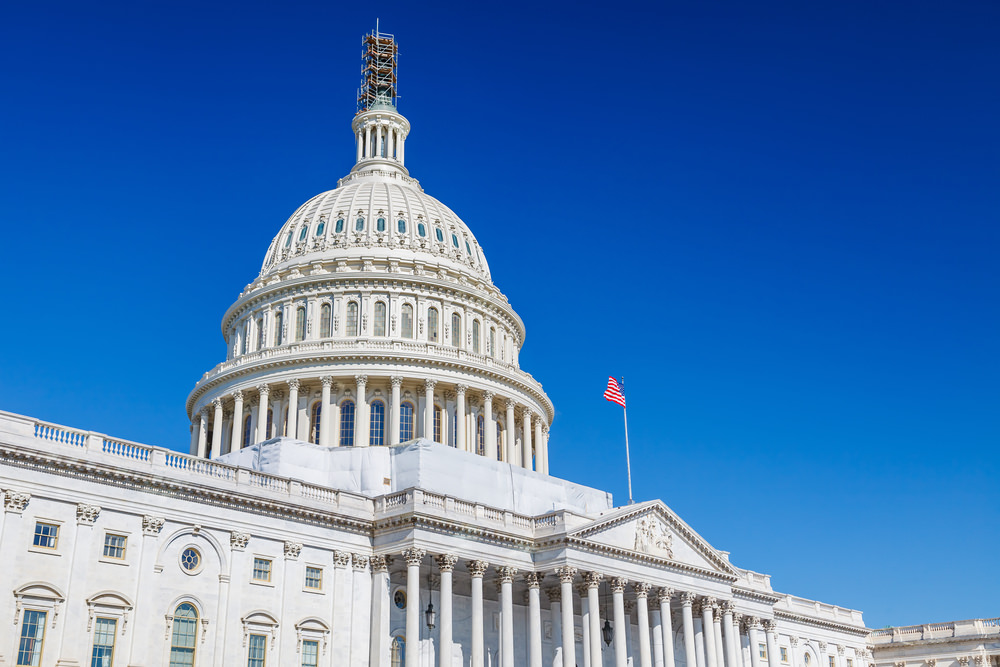
Congressional Report Warns of Potential Bitcoin Threat to US Dollar
A Congressional report quietly released last month suggests that bitcoin could be a threat to US monetary policy, and makes the case for continued central banking control.
The report, Bitcoin: Questions, Answers, and Analysis of Legal Issues, was published by the Congressional Research Service, which produces research reports for US policy makers. It argues for the benefits of a single, incumbent currency (the US dollar), for stability.
The authors suggest that too much bitcoin usage would lead to a tightening of monetary policy, because it could increase the money supply of US dollars.
This would depend on a couple of factors, though. Firstly, enough people would need to be using bitcoin for it to have an effect. At the moment, the bitcoin economy is highly illiquid, leading to the volatility that we’ve seen in the last year.
Secondly, bitcoins must be used as a currency in their own right. If they are bought into circulation when exchanged for fiat money, and then taken back out of circulation when users ‘cash out’ back into fiat, the effect on the money supply would be small, the authors suggest.
If, however, bitcoins are substituted for dollars on a more systematic, long-term basis, the situation would change, because it would decrease the need to hold dollars, and increase the supply of fiat money. The danger, according to the report, is that this could reduce the demand for dollars, which would affect the rate of circulation. This would confound things for the Federal Reserve, which effects monetary policy by adjusting the banking system’s available dollar reserves.
Challenges to widespread adoption
But the paper questions bitcoin’s ability to become a major currency for several reasons. One of these is simply because the dollar is already highly liquid and well established, and so difficult to displace. This isn’t insurmountable, though, it admits.
Serial bitcoin entrepreneur Erik Voorhees says that bitcoin’s outpacing of the dollar is certain.
“It is a better money, and all the guns and violence and central planning the government throws at it cannot stave off the laws of economics,” he says. However, he predicts this displacement happening gradually, from the margins.
Stephen Pair, co-founder and CTO at payment processor BitPay, discounts another of the report’s criticisms of bitcoin: its volatile pricing. The authors say that this makes it more of a speculative instrument than a currency. Although it is an issue, he says that software tools make it easy to hedge exposure.
“What remains to be seen is which national currency will be preferred for use in limiting that exposure.” he says. “So far it is the US dollar, but that could quickly change if another central bank began issuing their currency directly on the bitcoin block chain and facilitated the development of an options market around their currency.”
The paper also perceives another barrier to bitcoin's widespread adoption as a currency: a deflationary trait, which it says could lead to hoarding. “This possible outcome highlights the likely importance of the economy’s principal currency being elastic, its supply increasing and decreasing to meet the changing needs of the economy, and of the important role of the central bank in implementing such a monetary policy,” it warns.
Voorhees argues that bitcoin simply encourages more careful consumption, incentivizing savings. “Though most publicized economists will wholeheartedly claim this is a fault and calamity of Bitcoin, those of us who understand bitcoin politely disagree,” he adds.
The report also leaves the door open for prosecuting bitcoin under Counterfeiting Criminal Statutes, and the Stamp Payments Act of 1862, 18 U.S.C. §337 (something which Wired investigates further here), in addition to saying that the Commodity Futures Trading Commission (CFTC) could have the authority to regulate bitcoin. However, while it highlights these as possibilities, it stops short of recommending any such moves.
“If Congress reversed course and no longer wanted to get the benefits of bitcoin while minimizing its risks, the laws that could be used against bitcoin use would have to be stretched, perhaps to the breaking point,” responded the Bitcoin Foundation in a statement.
US Capitol image via Shutterstock
DISCLOSURE
The leader in news and information on cryptocurrency, digital assets and the future of money, CoinDesk is a media outlet that strives for the highest journalistic standards and abides by a strict set of editorial policies. CoinDesk is an independent operating subsidiary of Digital Currency Group, which invests in cryptocurrencies and blockchain startups. As part of their compensation, certain CoinDesk employees, including editorial employees, may receive exposure to DCG equity in the form of stock appreciation rights, which vest over a multi-year period. CoinDesk journalists are not allowed to purchase stock outright in DCG.

